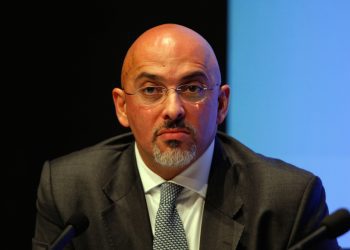A little more than a year after their resounding general election win, the Labour Party gathers in Liverpool this weekend hoping to rekindle the goodwill that swept them into office in the summer of 2024. After a bruising year of negative headlines and sliding poll numbers, the word is that this year’s conference slogan will centre on one idea: renewal.
At first glance, it is an intriguing choice. The dictionary definition — “to resume (an activity) after an interruption” — cuts uncomfortably close to the bone. Critics, including some inside the PLP (parliamentary Labour party), argue it is difficult to resume governing when the government has never really got started. One year in, Labour already finds itself entering phase two.
The party will counter that it has, unlike its predecessors, acted when questions of integrity arose (see Angela Rayner, Peter Mandelson, Tulip Siddiq) and even managed to find time to legislate (see the Industrial Strategy, Employment Rights Bill, Football Governance Act).
The issue for Labour is that very little of their achievements seems to be able to cut through, as they are continually drowned out by the cost-of-living crisis, global instability in Europe and the Middle East, Donald Trump’s return to the White House, and a media-hungry Nigel Farage.
The missing message
Communications, or the lack of it, remains the thread binding Labour’s challenges. The three directors of communications (Matthew Doyle, James Lyons, and now Tim Allan) under Keir Starmer tells its own story. More fundamentally, Starmer himself has been reluctant to articulate a governing philosophy. He famously told one union leader, “There is no such thing as Starmerism, and there never will be”. Their election campaign leaned heavily on simply being the only credible alternative to 14 years of Conservative rule, so they didn’t really have the need for a deeper vision.
The risks of this approach became clear quickly. By the 2024 conference, barely three months into government, Opinium polling already showed a sharp decline in public confidence. The damage was not on specific policy issues but on perceptions of purpose, competence, and trust. If a government is not trusted, even the most carefully crafted announcements land flat.
Now Labour faces credible alternatives eager to seize the mantle of change, in both Nigel Farage with his rip-it-up-and-start-again sell to the country, and closer to home, the ever-ambitious King of the North, Andy Burnham.
New rules of engagement
The approach to political communications has changed significantly in the last decade. The old model of controlling the narrative at set-piece moments, then retreating into government, no longer works. There must be a steady drumbeat of communication that not only explains policy but also offers hope. Conferences are a chance to reset, and “renew” may yet provide Labour with a rallying cry before the May local elections.
It is tempting to dismiss these slogans as superficial, but in an era of short attention spans and social media, they remain powerful.
The Conservatives always understood this, and slogans like “Labour Isn’t Working” to the focus group-friendly “Get Brexit Done” last long in the memory. This year, Reform UK went with “The Next Step”, signalling a party preparing for government. The Liberal Democrats avoided an official strapline but settled on the unofficial refrain, “Don’t let Trump’s America become Farage’s Britain.”
Ready for renewal?
Powerful slogans distil complexity into clarity and sketch a direction of travel. Public sympathy for the idea of renewal is real. Whether Labour can translate it into a story of purpose and optimism beyond the conference bubble is the question that will hang over Liverpool this weekend.
Politics.co.uk is the UK’s leading digital-only political website. Subscribe to our daily newsletter for all the latest news and analysis.
The post Renewing the message: how can Labour fix its broken comms? appeared first on Politics.co.uk.































